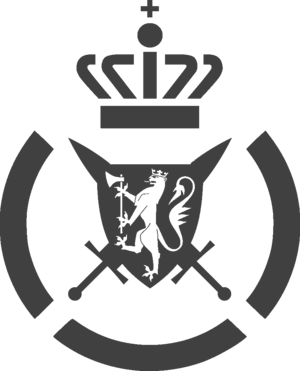Acrean Armed Forces
| Royal Acrean Armed Forces | |
|---|---|
| Forsvaret Reichswehr Forces Armées | |
 | |
| Founded | 1432 |
| Service branches | |
| Headquarters | Trier |
| Leadership | |
| King | Friedrich Leopold III |
| Minister of Defence | Jürgen von Edel |
| Chief of Defence Staff | Eirik Stordalen |
| Personnel | |
| Military age | 17 |
| Conscription | Unenforced, 18 |
| Active personnel | 1,257,049 personnel |
| Reserve personnel | 903,387 personnel |
| Expenditure | |
| Percent of GDP | 5% |
The Royal Acrean Armed Forces encompass the Army, Navy, Air Force, Marine Corps, and to an extent the national gendarmerie of the Kingdom of Acrea which collectively are responsible for the defence of the Acrean state and its overseas territories and dependencies. The Acrean Armed Forces serve to promote Acrea's wider interests, support international defence efforts, and support humanitarian operations. They are headed officially by the King or Queen acting as commander-in-chief, but the constitution has delegated de facto authority over the military to the Chancellor. Acrea has the largest defence budget in Tyran by total amount, though not by percentage of its GDP, and is the largest professional military in Tyran. It is one of the oldest military forces in Tyran.
The military has played a central role in Acrean affairs since the creation of the modern Acrean state's first standing army in 1432, which is also considered to be the founding date of the Armed Forces. It has seen numerous conflicts involving the region's great powers since its founding, including numerous wars with Acrea's neighbouring Eracuran states over the course of nearly six centuries.
History
Structure
Personnel
Conscription
While the Acrean Armed Forces are an all-volunteer military, the Ministry of Defence still maintains an inactive conscription system. Acrean youth, upon turning 17, are required to be examined both physically and psychologically for military eligibility. If they are found eligible, then they are registered by the Ministry of Defence and may be conscripted whenever the system is activated. There are numerous reasons for which someone may not be considered eligible; physical disability, lack of physical fitness, cognitive deficiencies, or mental health concerns are all reasons as to why an individual may be rejected. In addition, family circumstances may also make an individual ineligible- single parents are automatically ineligible to be conscripted. Religious concerns do not prevent someone from being registered or conscripted, and there is no right to conscientious objection. Conscription is not limited by gender. In 2009, Parliament voted to allow the extension of conscription to women, and the extension was put in place in 2010.
Women in the armed forces
The service of women in the Acrean military has historically been most prominent in the medical field, with women serving as nurses in medical corps since the 15th century. While these women were eligible for military pay and honours since 1506, women were not actually allowed to enlist or hold military rank until 1937, with Ministry of Defence orders establishing the Acrean Auxiliary Corps during the Eracuran Great War which simultaneously opened a number of roles to women. While few women were participated in combat for the duration of the conflict- primarily in specialist roles such as snipers- they served heavily in logistical, medical, and administrative roles. These units remained integrated following the war. By the 1960s, female participation into technician and other such roles expanding greatly, with the Acrean Air Force and Acrean Navy recognising granting its first distinguished graduate female aviators in 1970.
In 1980, the Ministry of Defence made recruitment of women to a wider array of roles within all branches an objective, and for the first time began recruitment campaigns specifically targeting women. The Air Force and Navy were notable in their efforts to diversify their personnel pools; aviation remains one of the most gender diverse areas within the Acrean military. Full gender equality in the Acrean military was instituted in 1989, with all roles in the military being fully open to women including special operations. In 2018, women made up 17% of the Acrean military, though certain areas such as aviation and medical care have a substantially higher percentage of female personnel than other areas such as the infantry, which remains male-dominant.